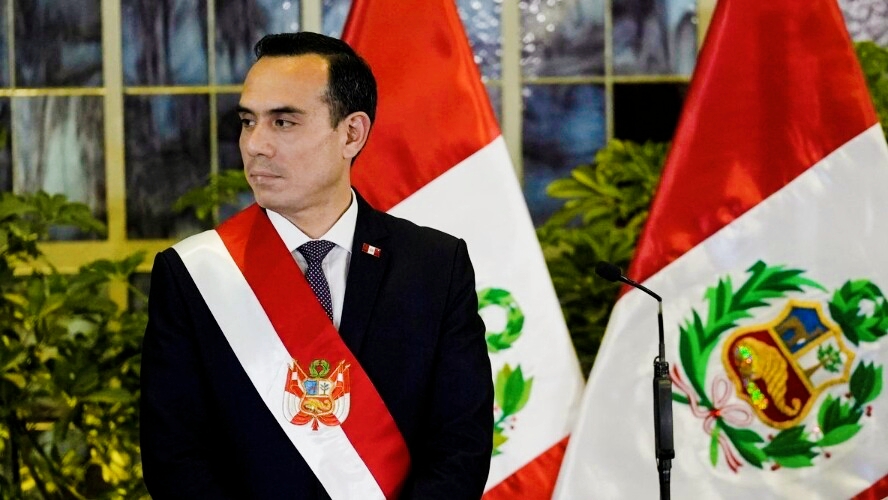Peru declares a state of emergency in the capital due to rising violence and organized crime

In a decisive step aimed at restoring security and enforcing order, interim President of Peru, José Gherí, announced yesterday evening, Tuesday, a state of emergency in the capital Lima and the neighboring city of Callao, as part of the effort to confront a rising wave of violence linked to organized crime.
In a speech broadcast on state television, Gherí stated that "the state of emergency approved by the Cabinet will come into effect at midnight, at 5:00 AM GMT, and will last for 30 days, covering the Greater Lima and Callao areas."
Under this decision, the army is granted the authority to patrol the streets, and the government can restrict certain civil rights such as the freedom of assembly, which is an exceptional measure reflecting the depth of the security crisis the country is experiencing.
* Gherí's first decisions since taking office
This announcement is the first major decision taken by José Gherí since he assumed the position of interim president of Peru about two weeks ago, succeeding former president Dina Boluarte, who was ousted on October 10 due to the worsening security situation in the country, especially in the transportation sector, where 47 bus drivers have been killed since January.
* "The era of chaos is over" .. Gherí pledges to restore security
In a firm tone, Gherí said:
"Crime has increased disproportionately in recent years, causing severe suffering for thousands of families and hindering the country's progress. But this is over. Today, we begin to change the narrative of insecurity in Peru."
He added:
"We are moving from defense to offense in the fight against crime, a battle that will allow us to restore peace, calm, and the trust of millions of Peruvians."
* Background of the political crisis
This step comes after the interim government announced earlier that it would impose a state of emergency in the capital, following a series of attacks and executions attributed to organized crime gangs.
The country has witnessed severe political turmoil in recent years, with seven governments succeeding one another over the past decade, amid chronic instability that hinders development and stability.
José Gherí will temporarily lead the country until July 2026, amidst enormous security, political, and economic challenges, in a country where insecurity has become the primary concern of citizens.